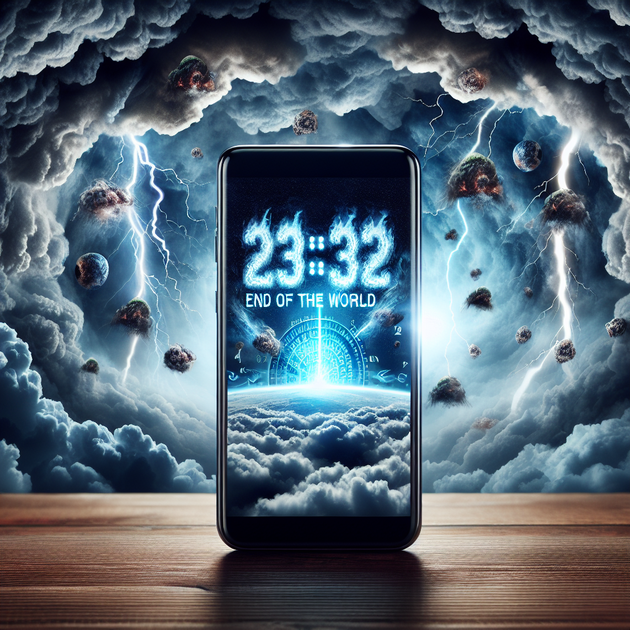Have you ever scrolled through your feed and seen someone claim the world is ending tomorrow? If you’ve been on Christian TikTok lately, you might’ve noticed exactly that—a wave of users saying we’ve only got one day left. But where did this idea come from… and why does it spread so fast?
Why Do “World Ending Tomorrow” Rumors Go Viral?
Let’s be honest—we’re all a little fascinated by apocalyptic predictions. Whether it’s a news headline or a dramatic YouTube video title, anything about the end of the world grabs attention fast. On platforms like TikTok, this stuff spreads even quicker.
One big reason doomsday rumors like “the world is ending tomorrow” catch fire on Christian TikTok is because short-form videos are perfect for dramatic messages. In just 60 seconds or less, you can see someone cite a Bible verse or share a dream about the apocalypse—often with emotional music and bold text.
But there’s more to it than just catchy content:
- A sense of urgency: “Tomorrow” feels immediate—you can’t ignore it.
- Community validation: When lots of people post similar things, it feels more believable.
- Anxiety outlet: During uncertain times (like after big news events), apocalyptic ideas get extra traction.
- Algorithm boosts: Controversial or emotional topics get pushed by social platforms.
What Does Christian TikTok Actually Say?
If you search “world ending tomorrow” or scroll through related hashtags on Christian TikTok, you’ll find a mix of content—some are serious warnings based on biblical prophecies; others are more tongue-in-cheek.
Here’s what tends to show up:
- Bible verses interpreted as signs of the end times
- Stories about dreams or visions predicting disaster
- Theories about current events (wars, natural disasters) as proof
- Calls to action (“Get right with God before it’s too late!”)
A lot of these videos feature dramatic editing—think thunderstorm sounds or flashing warning signs—to make things feel urgent. Some users genuinely believe what they’re sharing; others just want views or to join in on a trending topic.
The Psychology Behind Doomsday Predictions
Why do we keep falling for claims that the world is ending tomorrow—even when past predictions have never come true?
It turns out there are some pretty simple reasons:
- Fear sells: Our brains are wired to pay attention to threats—even imaginary ones.
- Skepticism fatigue: When everyone else seems convinced (and all your FYP says so), doubt feels harder.
- A need for answers: When life feels unpredictable or scary, knowing “the end is near” can feel oddly comforting—at least it makes sense of chaos.
I remember during high school when someone predicted an apocalypse because of a random calendar date. My friends and I half-joked about skipping homework—“Why bother if we won’t be here?” Of course nothing happened! But even then, I saw how quickly rumors moved from one person to another just because everyone wanted to talk about something wild.
The Reality Check: Should We Be Worried?
So—should we take these “world ending tomorrow” claims from Christian TikTok seriously? Short answer: probably not.
Here’s why:
- No credible scientific evidence supports any sudden apocalypse on a set date
- Doomsday predictions have been around forever—and never come true
- Misinformation spreads faster than facts online (especially with emotional topics)
That said, there’s no harm in being curious! Sometimes these viral moments tell us more about our fears and hopes than they do about actual events.
The next time you see an alarming claim like this pop up in your feed, ask yourself:
- Where did this information come from?
- Is anyone providing real evidence—or just speculation?
- How does this fit into past patterns of internet rumors?
Final Thoughts: Why Are We So Drawn to Apocalypse Talk?
It’s easy to poke fun at wild predictions—but maybe deep down we all want answers for things that feel out of our control. Social media gives anyone a megaphone (and sometimes an echo chamber), which means old fears get new life every time a trend pops up.
So… will the world end tomorrow? Almost certainly not. But our fascination with big questions—and dramatic stories—definitely isn’t going anywhere.
What do you think draws us back to these end-of-the-world rumors again and again? Let me know your thoughts below!

Leave a Reply